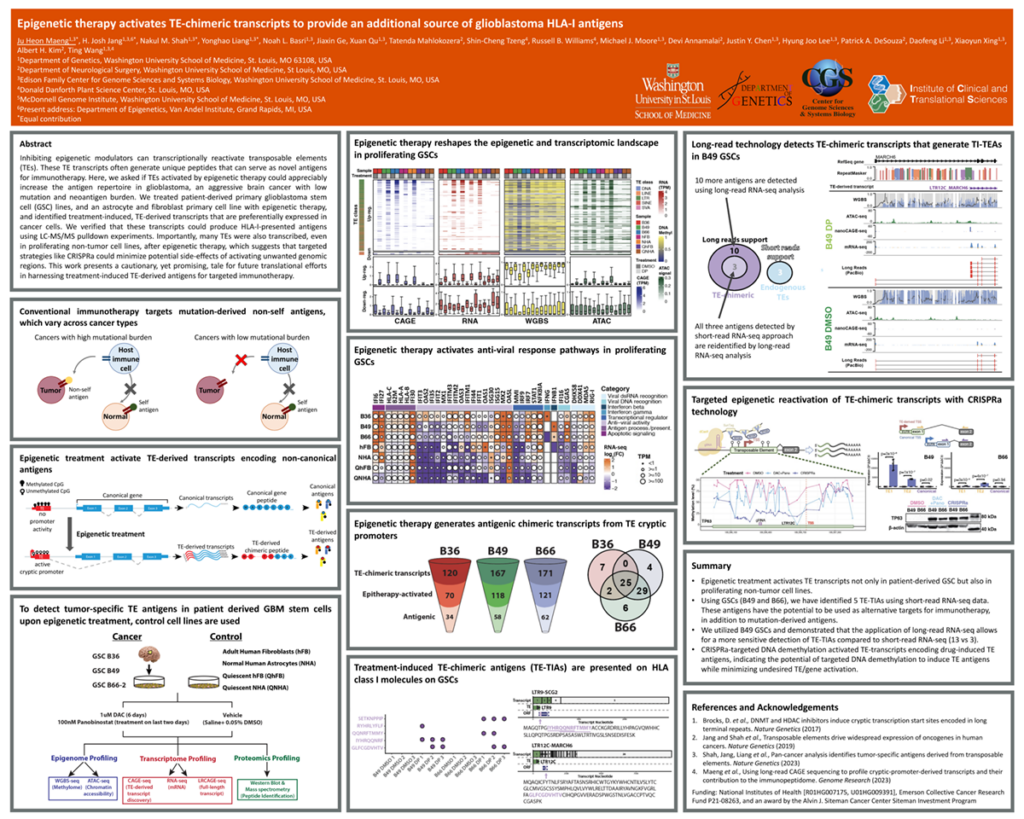
Introduction: Inhibiting epigenetic modulators can transcriptionally reactivate transposable elements (TEs). These TE transcripts often generate unique peptides that can serve as novel antigens for immunotherapy. Here, we asked if TEs activated by epigenetic therapy could appreciably increase the antigen repertoire in glioblastoma, an aggressive brain cancer with low mutation and neoantigen burden.
Methods: We treated patient-derived primary glioblastoma stem cell lines, and an astrocyte and fibroblast primary cell line with epigenetic therapy, and identified treatment-induced, TE-derived transcripts that are preferentially expressed in cancer cells.
Results: We verified that these transcripts could produce HLA-I-presented antigens using LC-MS/MS pulldown experiments. Importantly, many TEs were also transcribed, even in proliferating non-tumor cell lines, after epigenetic therapy, which suggests that targeted strategies like CRISPRa could minimize potential side-effects of activating unwanted genomic regions.
Impact: This work presents a cautionary, yet promising, tale for future translational efforts in harnessing treatment-induced TE-derived antigens for targeted immunotherapy.
Organization: Washington University in St. Louis
Maeng JH, Jang HJ, Shah NM, Liang Y, Basri NL, Ge J, Qu X, Mahlokozera T, Tzeng S, Williams RB, Moore MJ, Annamalai D, Chen JY, Lee H, DeSouza PA, Li D, Xing X, Kim AH, Wang T